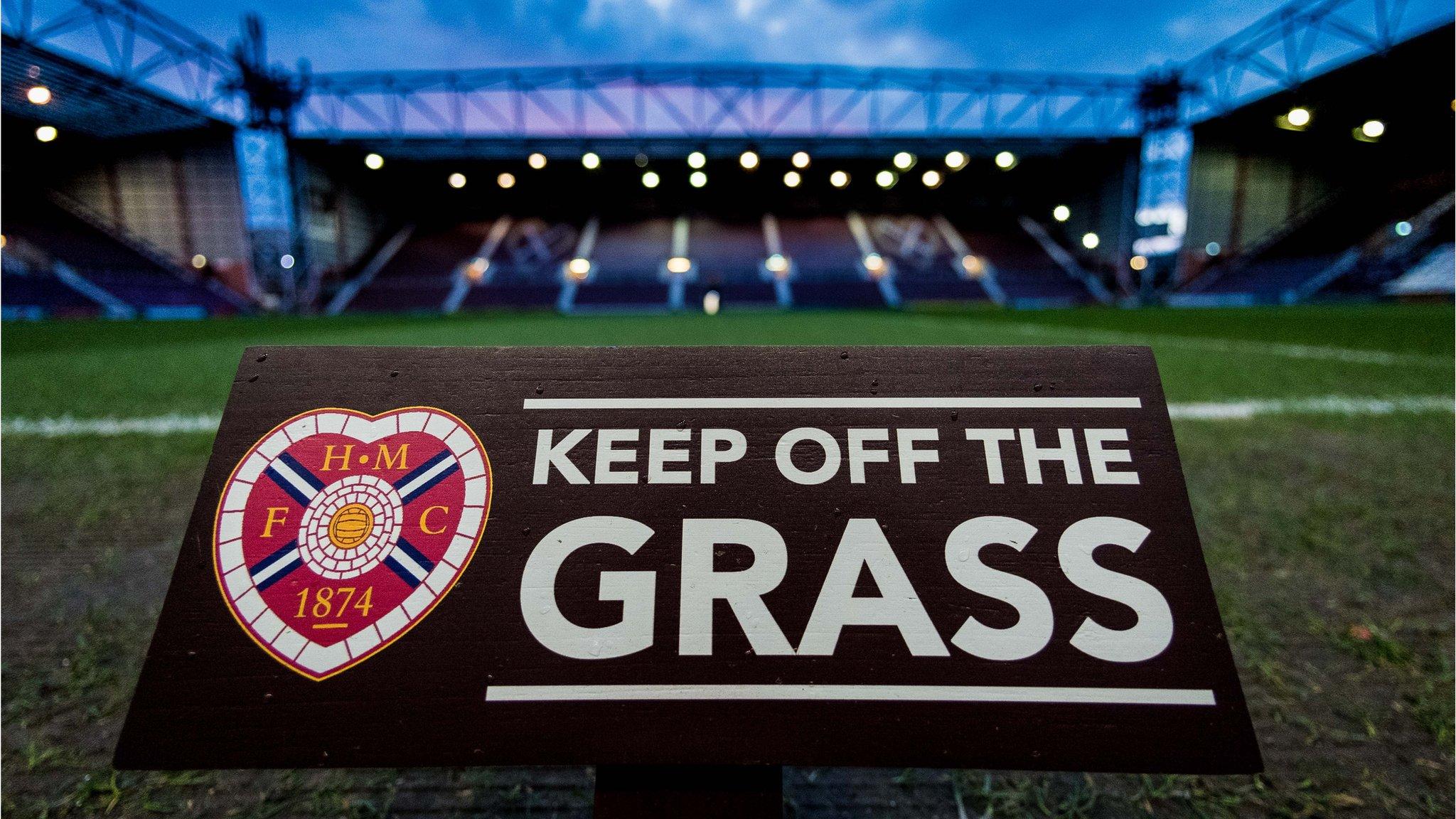Covid in Scotland: Hints at tougher restrictions around new year
- Published
Prof Jason Leitch: 'Better to act harder than softer' over Omicron
Senior officials have suggested Scotland could face tougher Covid-19 restrictions around the new year.
Prof Jason Leitch said it was better to "act harder" and "early" while Scotland Office minister Iain Stewart said "big decisions" may need to be made.
A four-nations Cobra meeting was held this weekend following calls for more financial support for businesses.
However, the first minister said she had no plans to recall Holyrood to discuss further measures.
She said the situation was "unpredictable" and that parliament "will sit as necessary", following a report in The Herald on Sunday, external.
She tweeted: "No idea what basis of this headline is, and it's not helpful to add to anxiety people already feel. It's a week before @ScotParl is even in recess."
Tone has 'shifted'
Exactly one year ago the first minister tightened restrictions around Christmas after it was hoped the rules would ease between 23 and 27 December.
Omicron is now the dominant variant in Scotland, with more than 10,000 UK cases reported on Saturday alone.
Currently, Scots are being advised to reduce their socialising as much as possible and to limit gatherings to three households - though large-scale events including the Scottish League Cup final and Edinburgh Hogmanay are still going ahead.
However, Prof Jason Leitch, Scotland's national clinical director, said the Scottish government's tone had "shifted" in the last few days.
Speaking to BBC Scotland's Sunday Show, he said: "The position is worrying, I make no bones about that. This new variant didn't exist 21 days ago - it's quite astonishing and it's happened just before Christmas again.
"Better to act early than later, better to act harder than softer - we've learned that over two years I'm afraid."
While about 53% of the eligible Scottish population has now received a booster jab, Prof Leitch added that the population was "not vaccinated enough" - and he shared concerns about mass gatherings such as football matches.
He said: "Buses, trains, all of them worry me - the outdoor experience at St Johnstone or Hampden, that doesn't worry me particularly, but getting to and from it do.
"I don't think any of these events are safe but nor is your studio and nor is my house. What we're trying to do is create safer environments for people as best as we possibly can."
Watch as the health secretary tells Andrew Marr he won't rule out bringing in tighter Covid measures
Prof Leitch spoke shortly after the UK's Health Secretary Sajid Javid told the Andrew Marr Show he would not rule out new coronavirus measures before Christmas - saying there are "no guarantees" in the pandemic.
In leaked minutes seen by the BBC, the Scientific Advisory Group for Emergencies (Sage) suggested that if no further restrictions were introduced, hospital admissions could peak at between 3,000 and 10,000 a day - and deaths between 600 and 6,000.
But Mr Javid said the government was challenging scientific data and considering wider factors before bringing in more measures, adding: "I don't think it would be appropriate for government to take it [the advice] verbatim."
'Big decisions'
Jillian Evans, head of health intelligence at NHS Grampian, called for tougher restrictions in Scotland.
"We can't boost ourselves out in time," she said. "We need more restrictions now. There are lots of things we can do individually which will make a huge difference but making things more official - and by that I'm talking about curtailing access to certain things, closing certain things - does bring the numbers down and buys us more time for people to be boosted."
First Minister Nicola Sturgeon warned on Friday that Omicron was now the dominant strain of the virus and a "tsunami" was beginning to hit Scotland.
New guidance for shops, hospitality venues and other businesses was introduced that same day, in a bid to stem the transmission of Covid.
Normally it would have been the busiest day of the year for many firms, but the hospitality sector reported a "bleak Friday" and repeated calls for more financial support.
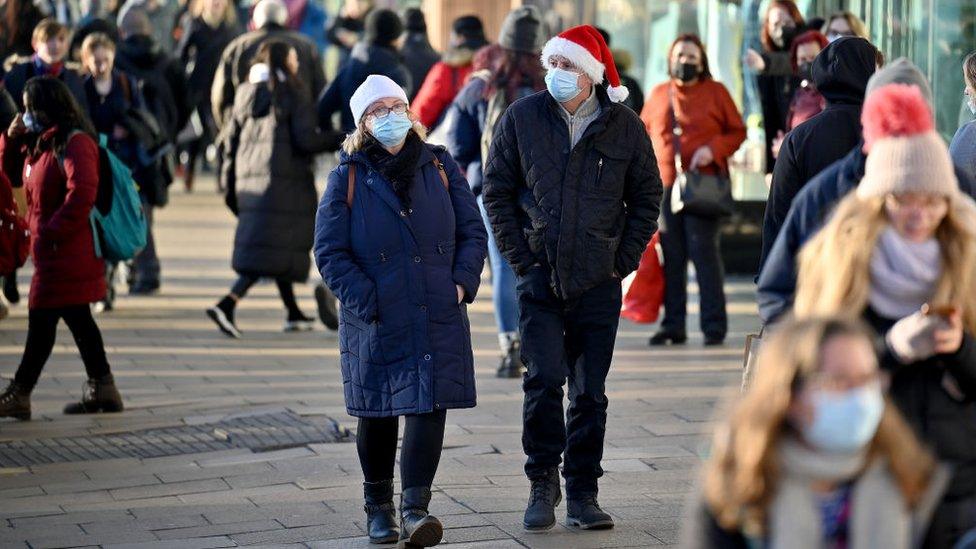
Shoppers on Princes Street in Edinburgh wore masks on the last Saturday before Christmas
Scotland's Finance Secretary Kate Forbes is seeking £500m from the Treasury, a figure she said was based on previous monthly furlough costs and grants.
Scotland Office minister Iain Stewart told the Sunday Show the UK government had already provided "considerable help" for the hospitality sector.
However, he conceded that "big decisions may need to be made" as discussions between governments were ongoing - which included negotiations on support from the army for the booster rollout.
He said: "There isn't a playbook for this and there are no cost-free decisions - every measure you take to provide public health restrictions because of the virus has other consequences, not just economic. It has effects on people's mental health and children's learning.
"I know the effects this is having on hospitality and leisure and there are discussions happening this weekend on what the appropriate response will be to that."
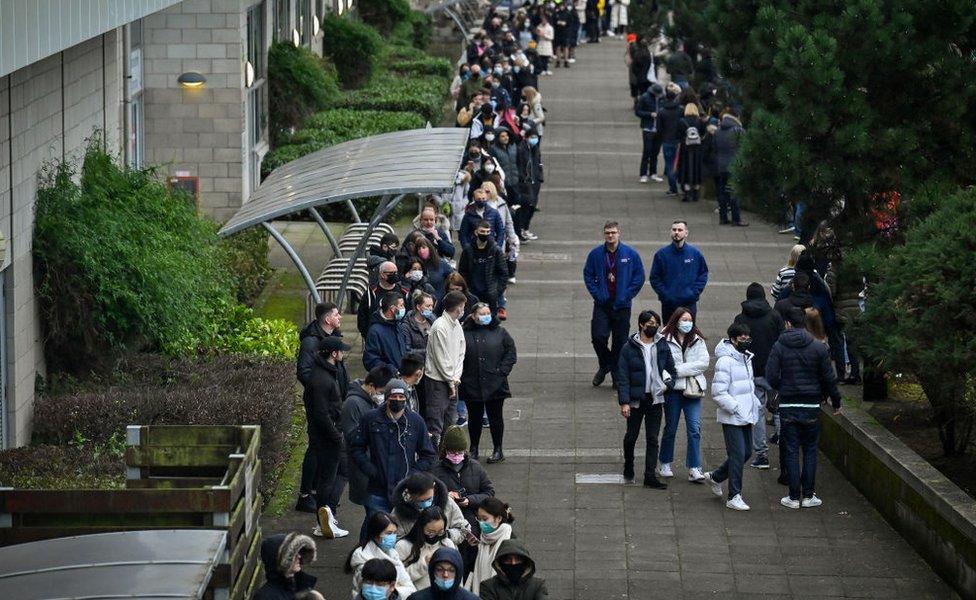
As new guidance came into effect on Friday, queues for booster jabs at the West College of Scotland in Clydebank were seen
Appearing on BBC Breakfast, Deputy First Minister John Swinney said there was clear evidence people in Scotland were changing their activity in response to the new guidance.
Asked what it would take for more measures to be introduced, he said the government was continuing to monitor the "really aggressive" spread of Omicron.
He added: "We will, of course, be updating parliament in the course of this week, on the further views that we have about any other measures that we need to take."


- Published19 December 2021
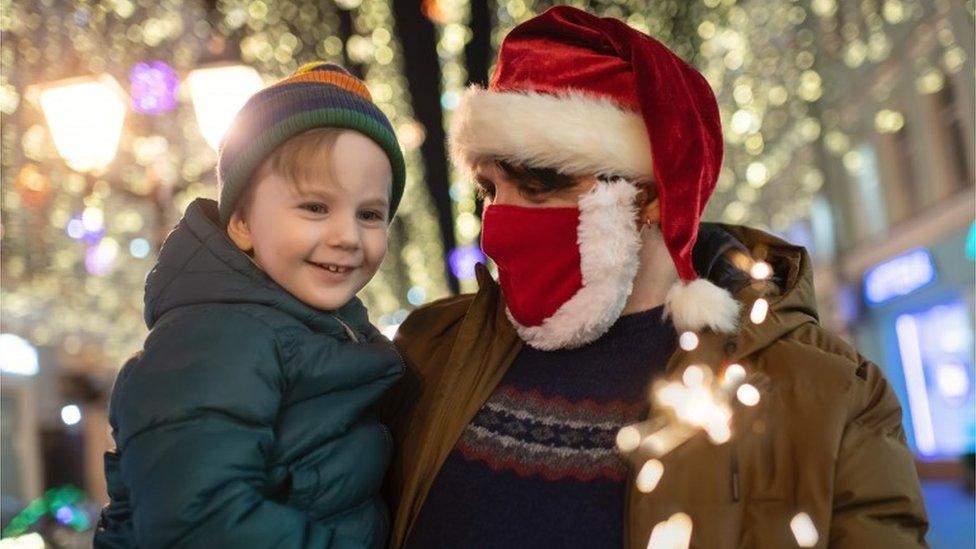
- Published18 December 2021
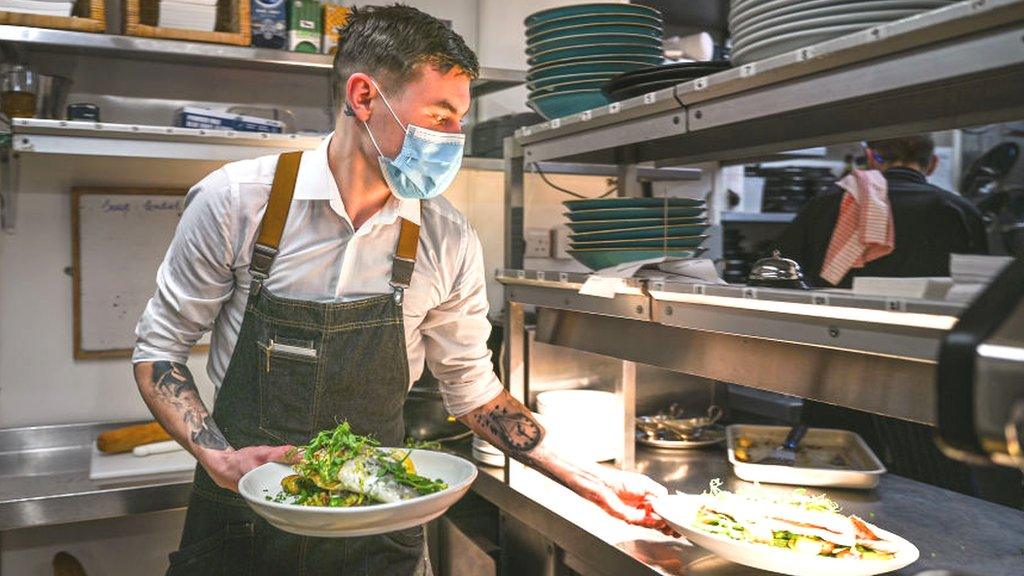
- Attribution
- Published18 December 2021
